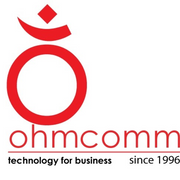
In today's digital economy, data is one of any business’s most valuable assets. Protecting this data from hackers and data thieves is crucial to maintaining the trust of customers, avoiding legal issues, and ensuring business continuity. Here are a few ways to secure your system and increase the chances of data recovery after a system fails.
How to Protect Your Business Assets
1. Implement Strong Access Controls
Access control systems ensure that only authorized personnel can access sensitive data. Data security companies offer a variety of role-based technologies that ensure each employee only has access to parts of the system they need to perform their job. Multi-factor authentication also protects your networks from unauthorized access. These systems require users to log in with multiple credentials, such as a password and code received through MMS, to ensure that only authorized personnel can access data.
2. Encrypt Sensitive Data

Encryption converts data into a code that can only be read by authorized personnel with a key. By encrypting sensitive data, companies can protect it from unauthorized access, even if the data is stolen or lost. Many manufacturers offer encryption tools, each with different tools and features. Along with choosing a system that meets your needs, you should also regularly review and update your encryption protocols to ensure that they are up to date and effective.
3. Provide Regular Training
Data security is not just the responsibility of the IT department, but it is also the responsibility of every employee in the company. Providing regular training to employees on data security best practices, such as how to recognize phishing emails and create strong passwords, can close the most common security gaps. Every company should also establish clear data security policies and ensure that employees understand and follow them.
4. Regularly Backup Data
No matter how strong a company's data protection measures are, data loss can still occur. Regular backups ensure that data backup is as easy and effective as possible. Technology changes and evolves, so you should also test your backup and recovery processes on a regular basis. Backups should be stored in an off-site data center or other secure location to minimize the risk of physical damage or theft.
Since 1996, OhmComm Inc. has provided reliable data recovery and IT services to organizations throughout the Mid-Atlantic region. Their experienced team will identify the ideal solutions for your application and help protect your system from breaches and other threats. Visit their website for more on their data recovery and backup services, or call (215) 467-1444 to speak with a member of their team.
About the Business
Have a question? Ask the experts!
Send your question

